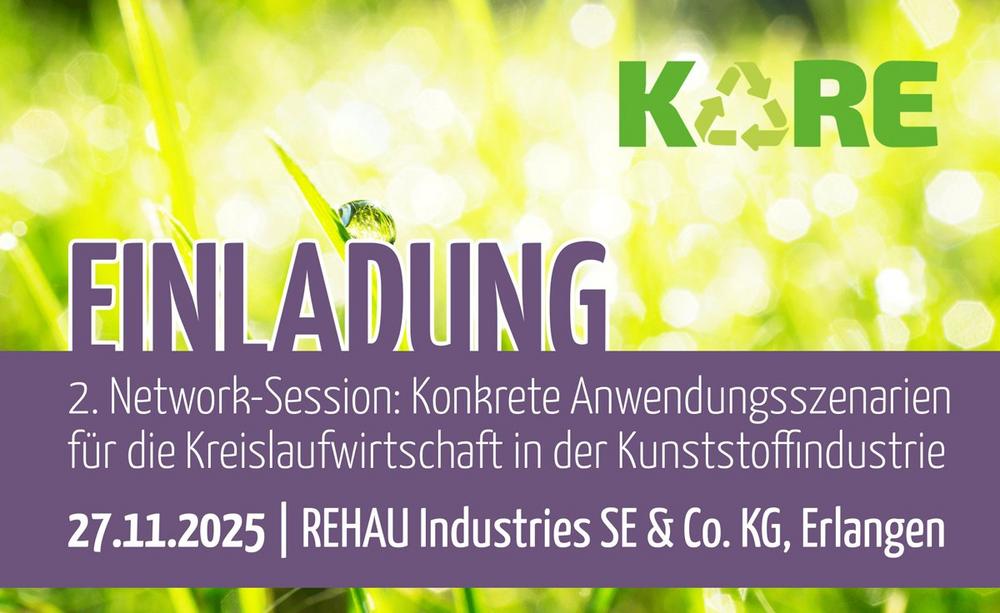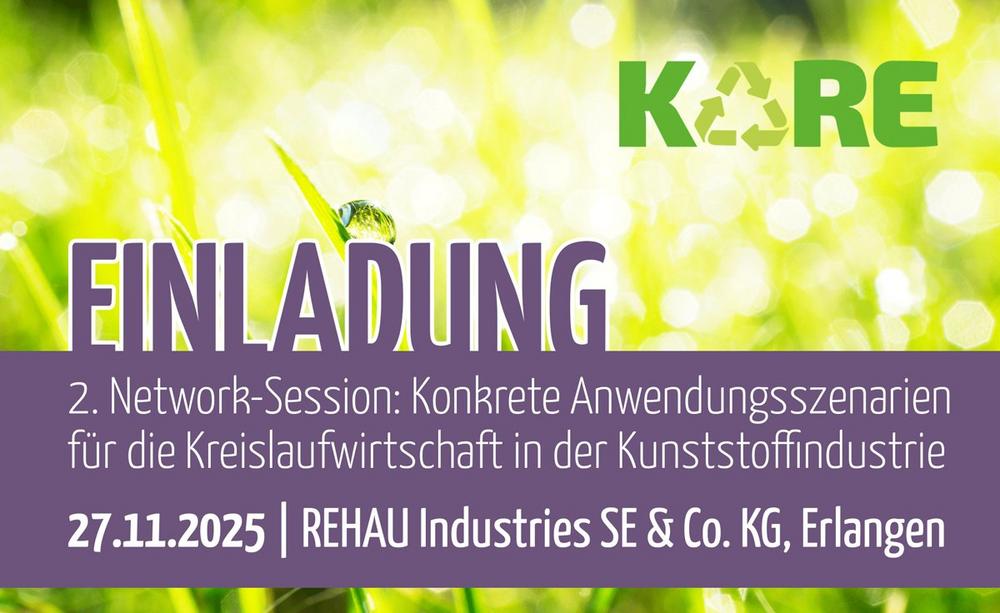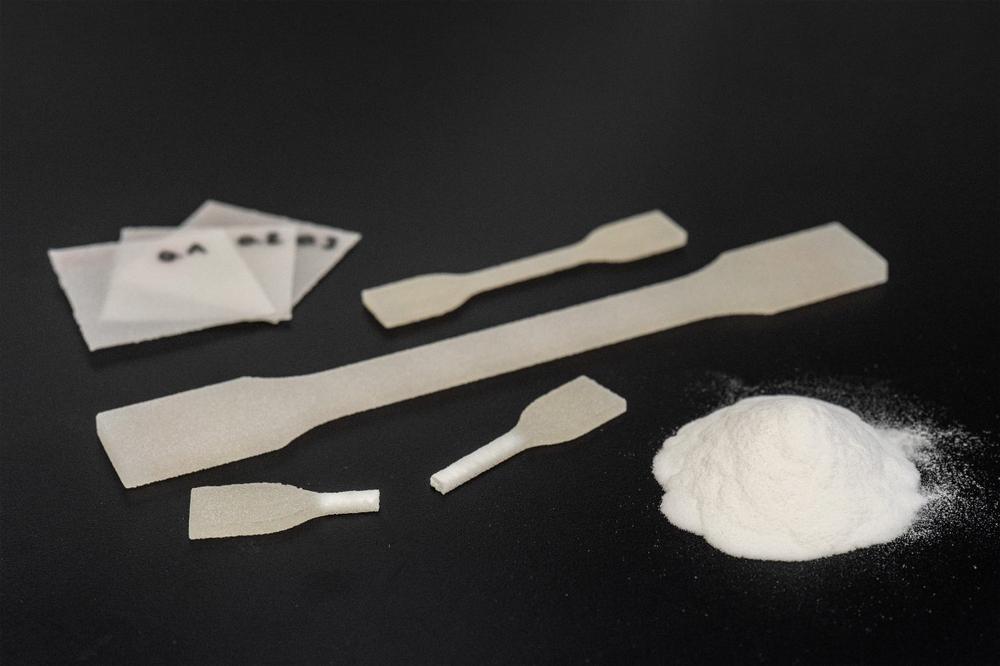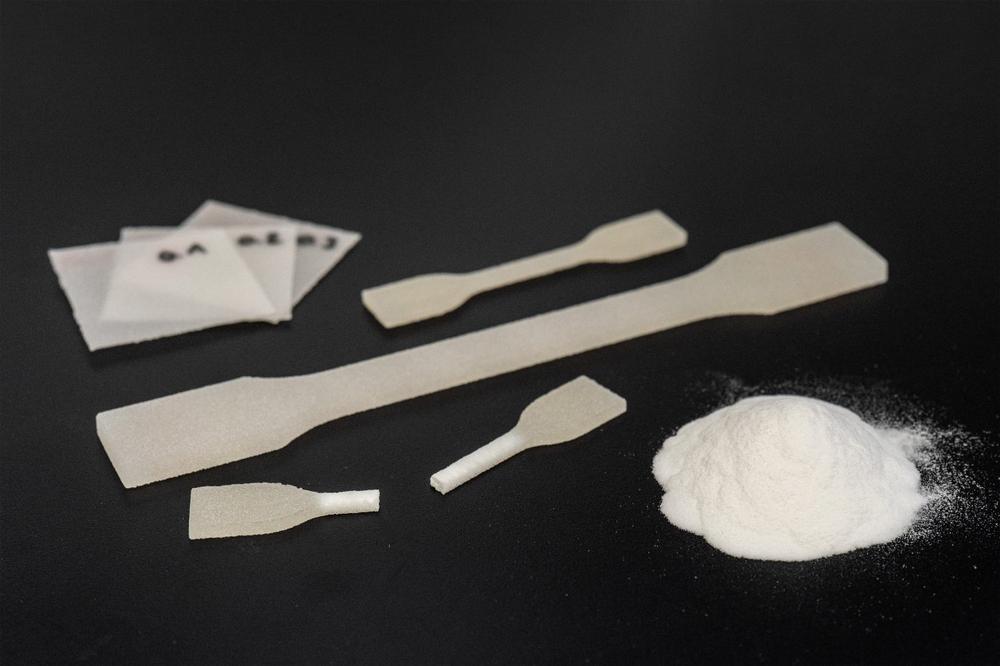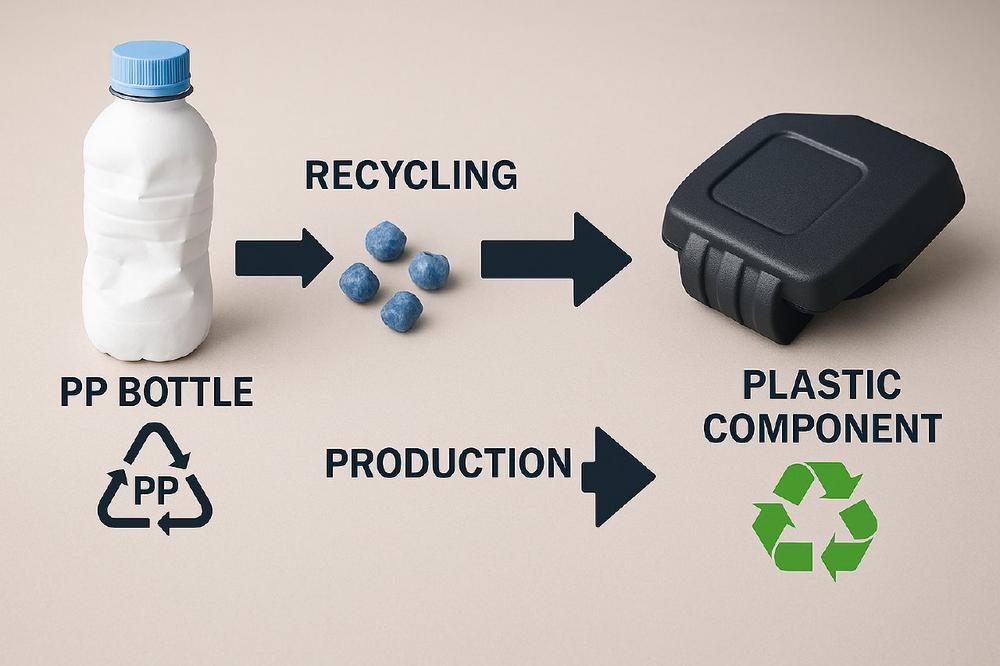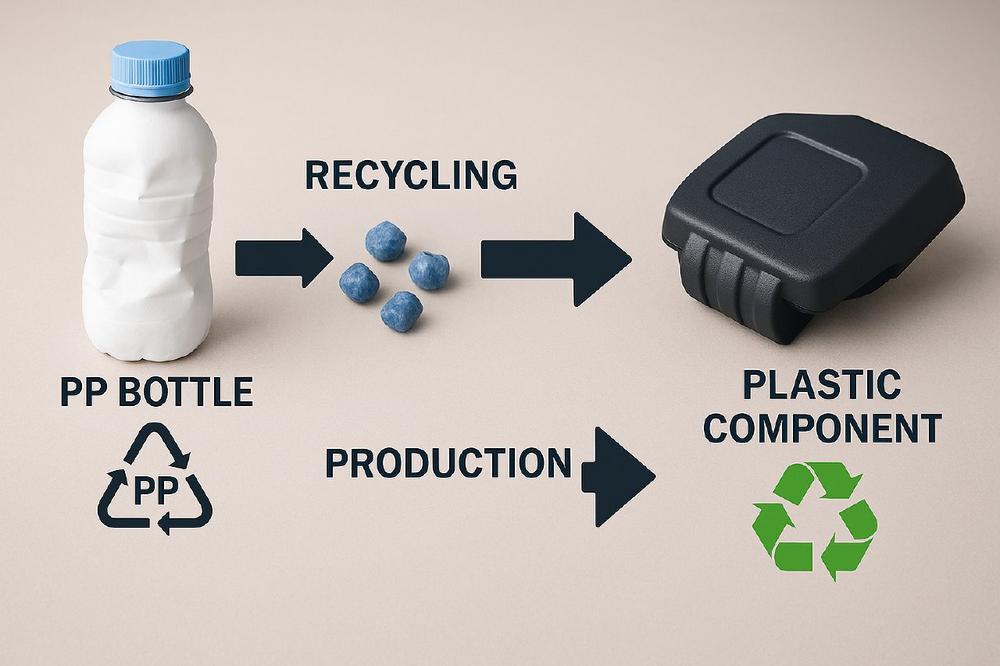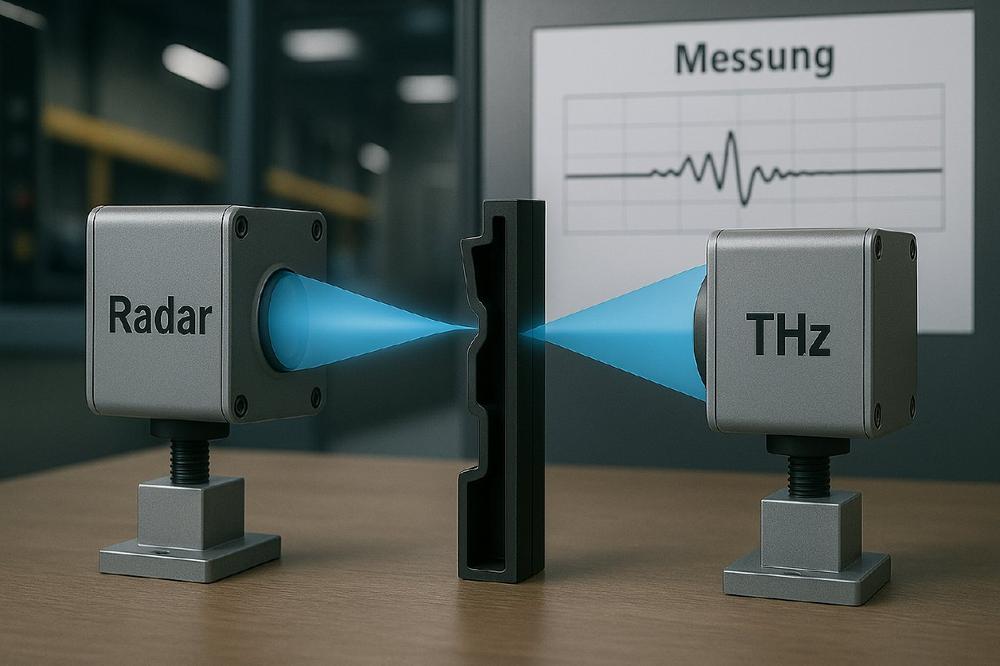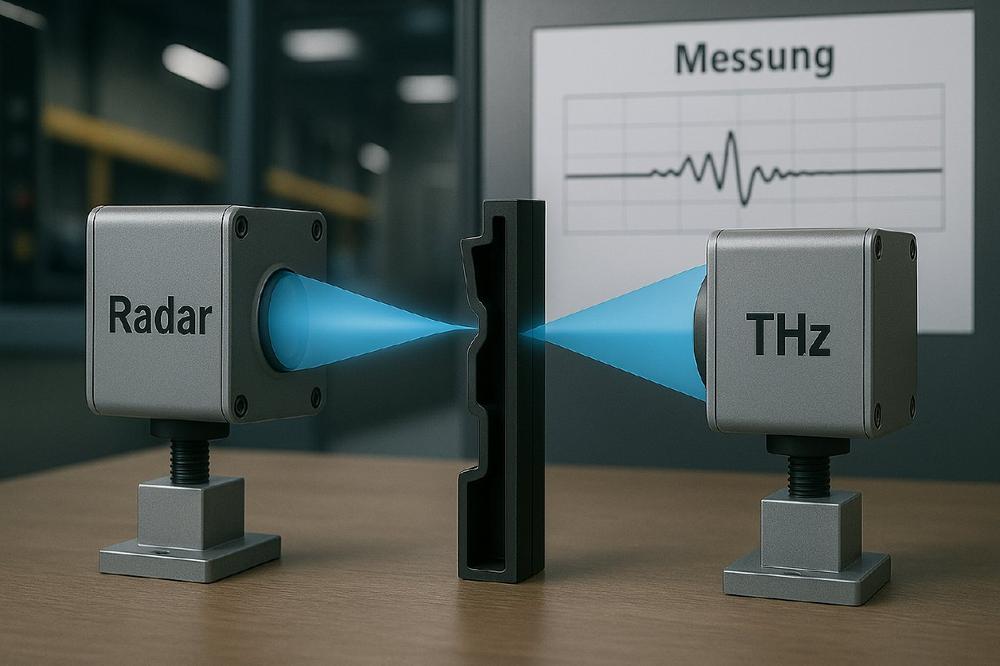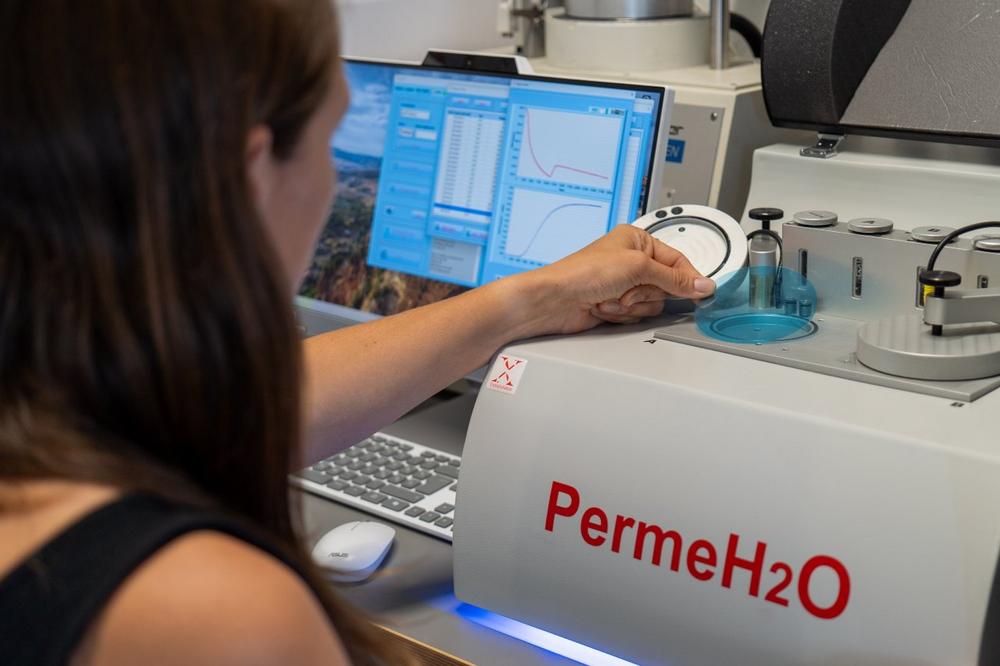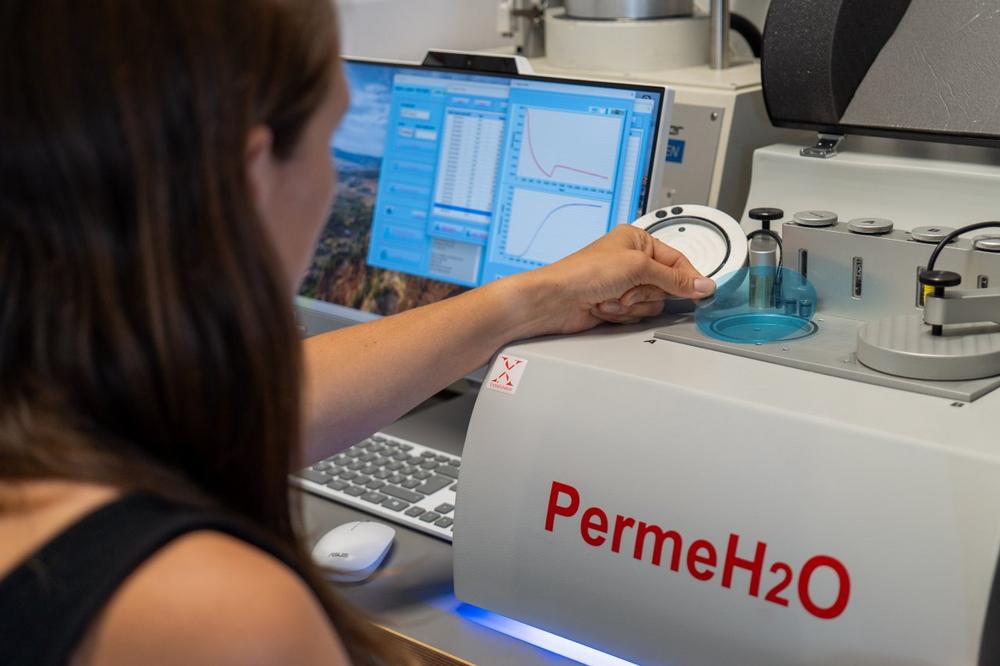-
Regional Competence Centre KARE invites you to its second networking session
The Regional Competence Centre for Labour Research (KARE) invites representatives from business, politics and society to the second network session on 27 November 2025 at REHAU in Erlangen. The focus will be on specific application scenarios for the circular economy in the plastics industry. The second KARE Network Session will address the question of how circular economy can be implemented in practice in the plastics industry. Among other things, current work on waste recycling in companies and on avoiding granulate losses along the supply chain will be presented. An accompanying vernissage will also offer a comprehensive overview of the project’s current application scenarios – from sustainable product design and CSRD…
-
Regionales Kompetenzzentrum KARE lädt zur zweiten Network-Session ein
Das Regionale Kompetenzzentrum der Arbeitsforschung KARE lädt Wirtschaft, Politik und Gesellschaft zur zweiten Network-Session am 27. November 2025 zu REHAU nach Erlangen ein. Im Mittelpunkt stehen konkrete Anwendungsszenarien für die Kreislaufwirtschaft in der Kunststoffindustrie. Die zweite KARE-Network-Session widmet sich der Frage, wie Kreislaufwirtschaft in der Kunststoffindustrie praktisch umgesetzt werden kann. Präsentiert werden unter anderem aktuelle Arbeiten zur Abfallverwertung in Unternehmen sowie zur Vermeidung von Granulatverlusten entlang der Lieferkette. Eine begleitende Vernissage bietet zudem einen umfassenden Überblick über die laufenden Anwendungsszenarien des Projekts – von nachhaltigem Produktdesign über Anforderungen der CSRD-Berichterstattung bis hin zu Strategien für den Einsatz von Rezyklaten in der Produktion. Führungen durch die Innovationsräume von REHAU und eine…
-
Neue Validierungsmethode für lasergesinterte PP-Bauteile
Das Forschungsprojekt RaPPoD soll durch die Entwicklung eines geeigneten PP-Pulvers und das Lasersintern von Monolayern zur Validierung bisher nicht demonstrierte Bauteileigenschaften für lasergesinterte PP-Teile ermöglichen. Mit dem Projekt RaPPoD – Rapid PBF Polymer Development startet eine zukunftsweisende Initiative zur schnelleren Entwicklung neuartiger Kunststoffpulver für die additive Fertigung mittels Powder Bed Fusion (PBF), auch bekannt als Selektives Lasersintern (SLS). Ziel ist es, eine innovative Validierungsmethode auf Basis des Drucks sogenannter Monolayer zu etablieren, die den Entwicklungsprozess neuer Materialien deutlich beschleunigt und ressourcenschonender gestaltet. Additive Fertigungsverfahren haben sich längst von der Prototypenfertigung zur industriellen Serienproduktion weiterentwickelt. Besonders das PBF-Verfahren gilt als eines der leistungsfähigsten Verfahren zur Herstellung komplexer Kunststoffbauteile. Derzeit wird der…
-
New validation method for laser-sintered PP components
The RaPPoD research project aims to enable the validation of previously undemonstrated component properties for laser-sintered PP parts by developing a suitable PP powder and laser sintering monolayers. The RaPPoD – Rapid PBF Polymer Development project marks the launch of a pioneering initiative aimed at accelerating the development of novel plastic powders for additive manufacturing using powder bed fusion (PBF), also known as selective laser sintering (SLS). The aim is to establish an innovative validation method based on the printing of so-called monolayers, which significantly accelerates the development process for new materials and makes it more resource-efficient. Additive manufacturing processes have long since evolved from prototype production to industrial series…
-
New fields of application for recycled plastics in technical components
The use of post-consumer recycled plastics (PCR) is becoming increasingly important in technically demanding products. In addition to ecological advantages, raw material security and regulatory requirements are becoming increasingly important. However, while recycled materials have long been established in packaging and consumer goods, their use in highly stressed technical components continues to pose a major challenge. Where recycled materials still face limitations In automotive engineering, recycled materials are currently used primarily in wheel arch liners, underbody panelling and boot linings. However, they are still rarely found in functional or thermally highly stressed areas such as the engine compartment, mechanical engineering or electrical engineering. The reason for this lies in the…
-
Neue Anwendungsfelder für Kunststoffrezyklate in technischen Bauteilen
Der Einsatz von Post-Consumer-Kunststoffrezyklaten (PCR) gewinnt in technisch anspruchsvollen Produkten stark an Bedeutung. Neben ökologischen Vorteilen rücken Rohstoffsicherheit und regulatorische Vorgaben immer stärker in den Fokus. Doch während Rezyklate in Verpackungen oder Konsumgütern längst etabliert sind, stellt ihr Einsatz in hochbelasteten technischen Bauteilen weiterhin eine große Herausforderung dar. Wo Rezyklate noch an Grenzen stoßen Im Automobilbau kommen Rezyklate heute vor allem in Radhausschalen, Unterbodenverkleidungen oder Kofferraumauskleidungen zum Einsatz. In funktionalen oder thermisch hoch belasteten Bereichen wie im Motorraum, im Maschinenbau oder in der Elektrotechnik sind sie dagegen noch selten zu finden. Der Grund liegt in den hohen Anforderungen an Temperaturbeständigkeit, Medienresistenz und Langzeitstabilität. „Aktuell bestehen noch deutliche Hürden beim Einsatz…
-
What the eye cannot see, SKZ measures!
Geometric measurements are an important component of modern quality assurance for plastic products. Inline measurement of the layer thickness of pipes or analysis of multi-layer composite systems enables dimensional accuracy to be checked and, if necessary, corrected. To this end, the SKZ Plastics Centre uses terahertz (THz) and radar technology, which is opening up an increasing number of areas of application in cooperation with industry as a result of increasing automation and Industry 4.0. Two aspects are particularly important in the manufacture of plastic products: correct dimensional accuracy and the absence of manufacturing defects. Since plastics often have opaque properties and measuring geometry by eye only allows for inaccurate analysis,…
-
Was das Auge nicht sieht, misst das SKZ!
Im Rahmen einer zeitgemäßen Qualitätssicherung von Kunststoffprodukten stellen Geometriemessungen einen wichtigen Baustein dar. Die Inline-Messung der Schichtdicke von Rohren oder die Analyse von mehrschichtigen Verbundsystemen ermöglicht die Überprüfung und gegebenenfalls Korrektur von Maßhaltigkeiten. Das Kunststoff-Zentrum SKZ bedient sich zu diesem Zweck der Terahertz- (THz-) sowie der Radar-Technik, welche im Zuge einer zunehmenden Automatisierung und im Rahmen von Industrie 4.0 in Kooperation mit der Industrie eine steigende Anzahl an Anwendungsgebieten erschließt. Bei der Herstellung von Kunststoffprodukten sind insbesondere zwei Aspekte von entscheidender Bedeutung: die korrekte Maßhaltigkeit und das Ausbleiben von Fertigungsfehlern. Da Kunststoffe häufig opake Eigenschaften aufweisen und eine Geometriemessung mit dem Auge nur eine ungenaue Analyse ermöglicht, werden spezifische Methoden…
-
SKZ is taking off!
A new testing device now enables the SKZ plastics centre in Würzburg to determine water vapour permeability. This is an important quality criterion in many industrial applications. The SKZ Plastics Centre has expanded its equipment with a state-of-the-art measuring system: the PermeH2O water vapour permeability tester. This new testing device allows the water vapour permeability of films to be determined even more precisely and under realistic conditions – a decisive quality criterion for applications in the food and beverage industry, pharmaceutical and medical technology, and electronics. The PermeH2O operates in accordance with ISO 15106-2 and offers a wide range of tests: • relative humidity between 5 and 95%, • temperatures…
-
SKZ dampft ab!
Ein neues Prüfgerät ermöglicht dem Kunststoff-Zentrum SKZ in Würzburg nun auch die Bestimmung der Wasserdampfdurchlässigkeit. Diese stellt ein wichtiges Qualitätskriterium in vielen industriellen Anwendungen dar. Das Kunststoff-Zentrum SKZ hat seine Ausstattung um ein hochmodernes Messsystem erweitert: den PermeH2O-Wasserdampfdurchlässigkeitsprüfer. Mit diesem neuen Prüfgerät kann die Wasserdampfdurchlässigkeit von Folien noch präziser und unter praxisnahen Bedingungen bestimmt werden – ein entscheidendes Qualitätskriterium für Anwendungen in der Lebensmittel- und Getränkeindustrie, der Pharma- und Medizintechnik sowie im Bereich Elektronik. Der PermeH2O arbeitet nach ISO 15106-2 und bietet ein breites Prüfspektrum: relative Luftfeuchtigkeit zwischen 5 und 95 %, Temperaturen von 10 bis 50 °C, Stickstoff als Trägergas, Probengrößen bis 50 cm² und Dicken bis ca. 2,5…

